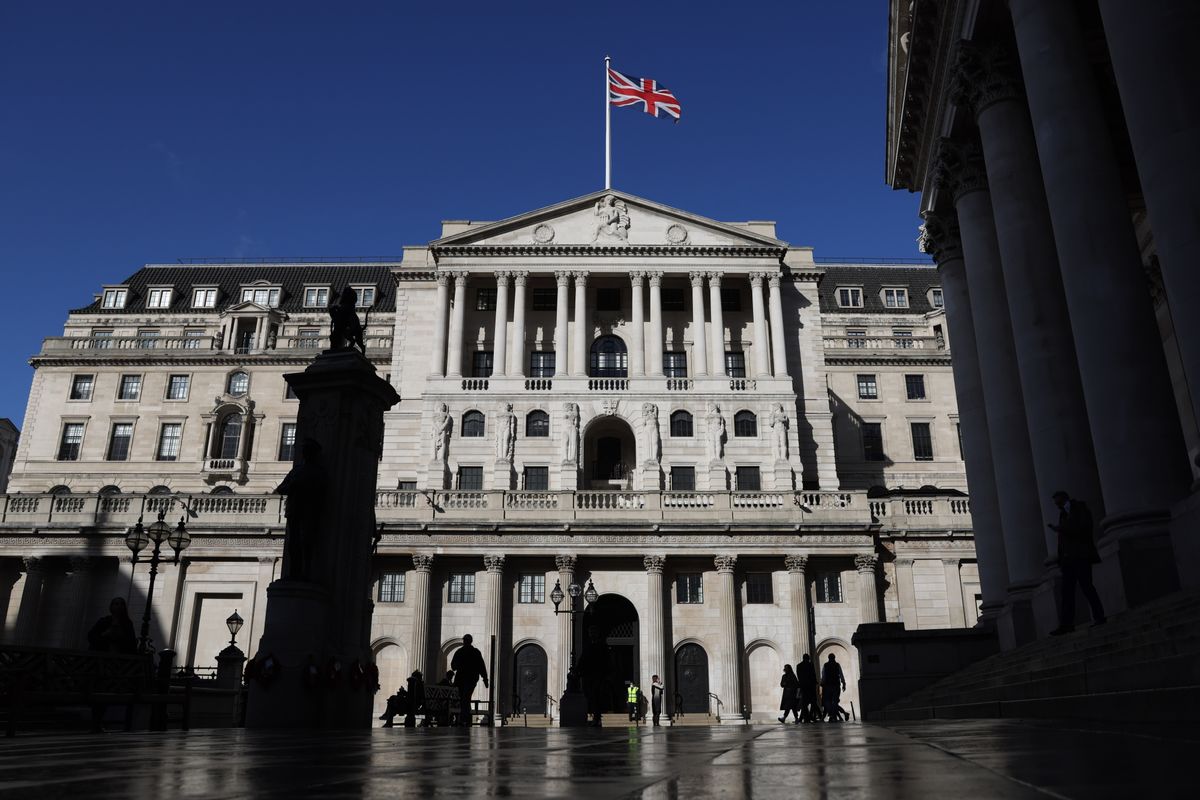Bank of England Governor Warns Against Stablecoins, Backs Tokenized Deposits Instead
14.07.2025 11:00 1 min. read Kosta Gushterov
Bank of England Governor Andrew Bailey has voiced strong concerns about the rising push for stablecoin adoption, calling on banks to steer clear of issuing their own digital currencies.
In a recent interview with The Times, Bailey argued that tokenized commercial bank deposits offer a safer and more stable path for integrating digital finance into the traditional banking system.
Stablecoins threaten lending and stability, Bailey says
Bailey warned that widespread stablecoin adoption could severely disrupt traditional banking. “If money leaves the banking system, banks have less to lend,” he explained, highlighting fears of disintermediation and reduced credit capacity. He emphasized that allowing banks to issue private digital tokens could pose systemic risks, especially in periods of market stress.
Regulatory divergence: UK caution vs US enthusiasm
As Chair of the Financial Stability Board, Bailey also cited concerns over the use of stablecoins in money laundering, particularly through unregulated digital payment systems. His comments contrast with recent moves in the US, where the GENIUS Act seeks to formalize stablecoin regulation under federal oversight.
No rush for a digital pound
Bailey further cast doubt on the urgency of launching a UK central bank digital currency (CBDC). Instead of a digital pound, he proposed digitizing existing commercial bank deposits—a move he described as a more “sensible” option that avoids unnecessary disruption to the banking system’s core functions.
-
1
Key U.S. Events to Watch This Week That Could Impact Crypto
30.06.2025 11:00 2 min. read -
2
Here Is How Your Crypto Portfolio Should Look Like According to Investment Manager
30.06.2025 10:00 2 min. read -
3
SoFi Returns to Crypto with Trading, Staking, and Blockchain Transfers
27.06.2025 8:00 1 min. read -
4
GENIUS Act Could Reshape Legal Battle over TerraUSD and LUNA Tokens
30.06.2025 9:00 1 min. read -
5
Here is How to Read the Crypto Fear and Greed Index
14.07.2025 15:00 3 min. read
Grayscale Confidentially Files for New SEC-registered Offering Amid Growing Crypto Market demand
Grayscale Investments announced today that it has confidentially submitted a draft registration statement on Form S-1 to the U.S.
Here is How to Read the Crypto Fear and Greed Index
In the volatile world of cryptocurrency, investor psychology is one of the most powerful forces behind price movement.
Czech National Bank Enters Crypto Sector with $18M Coinbase Investment
The Czech National Bank (CNB) has entered the crypto sector with a $18 million investment in Coinbase, purchasing 51,732 shares in Q2 2025, according to a U.S. SEC filing.
Weekly Roundup: What Happened in Crypto Over the Past Week
From groundbreaking Ethereum developments to record-breaking DeFi activity and major protocol updates, the crypto industry saw a flurry of important announcements this past week.
-
1
Key U.S. Events to Watch This Week That Could Impact Crypto
30.06.2025 11:00 2 min. read -
2
Here Is How Your Crypto Portfolio Should Look Like According to Investment Manager
30.06.2025 10:00 2 min. read -
3
SoFi Returns to Crypto with Trading, Staking, and Blockchain Transfers
27.06.2025 8:00 1 min. read -
4
GENIUS Act Could Reshape Legal Battle over TerraUSD and LUNA Tokens
30.06.2025 9:00 1 min. read -
5
Here is How to Read the Crypto Fear and Greed Index
14.07.2025 15:00 3 min. read


